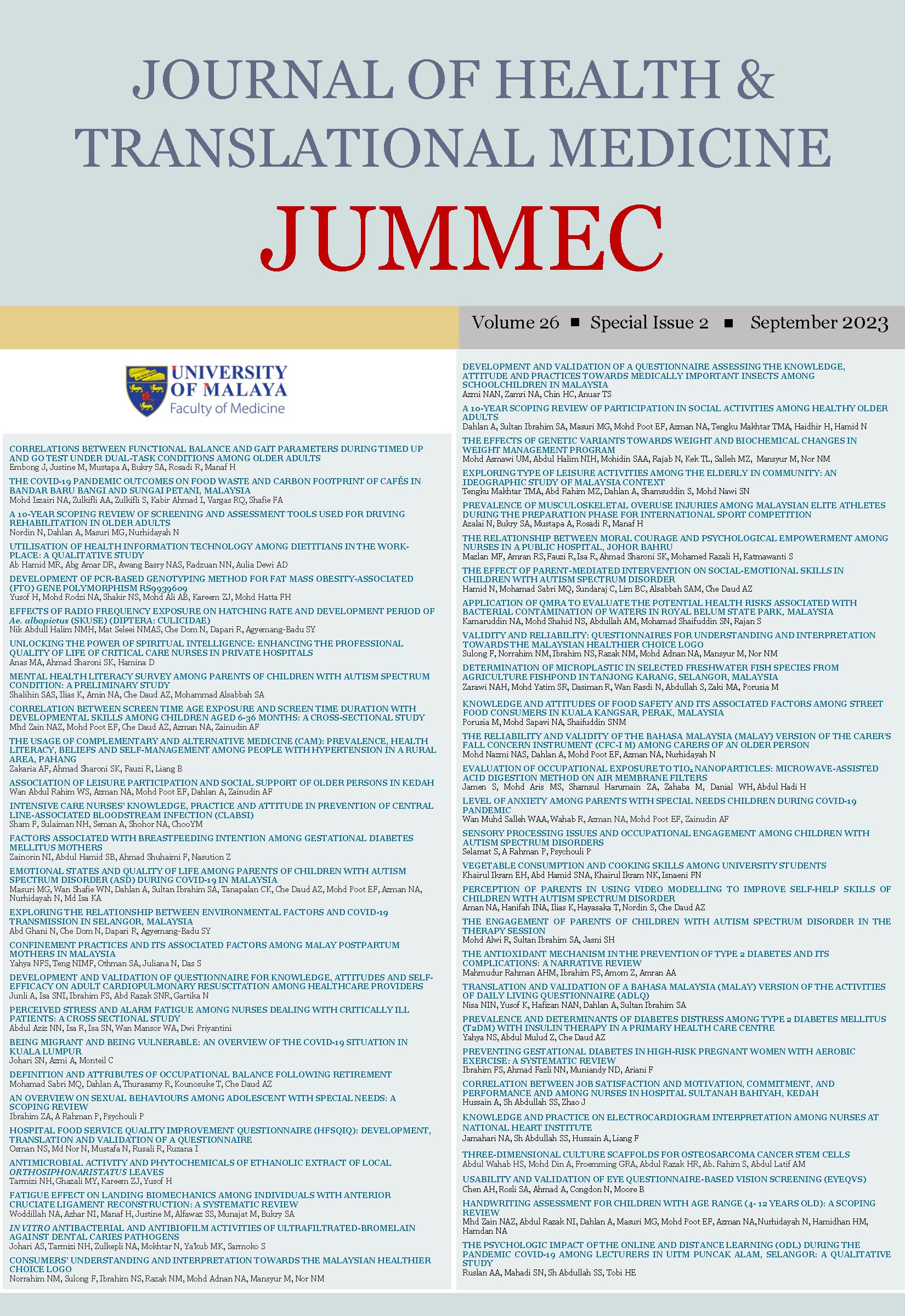AN OVERVIEW ON SEXUAL BEHAVIOURS AMONG ADOLESCENT WITH SPECIAL NEEDS: A SCOPING REVIEW
Received 2023-07-07; Accepted 2023-08-23; Published 2023-09-15
DOI:
https://doi.org/10.22452/jummec.sp2023no2.21Abstract
Sexuality issues are rarely discussed in Malaysia and are considered taboo and culturally inappropriate. Sexuality
is divided into three components; sexual behaviour, biological influences, and making sense of sexuality. Sexual
behaviour is classed into non-coital sexual behaviour (e.g., fantasy, masturbation) and sexual intercourse (e.g.,
partners, sexual coercion). Note that sexual behaviour is individuals’ experiences of sexual feeling or expression,
while any sexual activity that raises the possibility of getting pregnant or contracting a sexually transmitted diseases
(STD) is referred to as risky sexual behaviour (RSB). This scoping review is conducted to determine sexual behaviours among adolescents with special needs, to investigate factors of their sexual behaviours, and to determine the need for sexuality education and the potential roles of occupational therapists (OTs) in managing their behaviours. The author independently searched through databases, for instance, Google Scholar, Science Direct, Web of Science, as well as PubMed, and 17 studies, met the criteria and were reviewed. Masturbation, inappropriate gestures and exhibitionism were common sexual behaviours among adolescents with special needs. Such behaviours were caused by a lack of sexual understanding, sexual knowledge and awareness, and pornography addiction. This review contributes to developing interventions that solve challenging sexual behaviour, rule OT roles in sexuality and guide parents with obligatory educational support in delivering sexual knowledge to their children.
Downloads
Downloads
Published
Issue
Section
License
All authors agree that the article, if editorially accepted for publication, shall be licensed under the Creative Commons Attribution License 4.0 to allow others to freely access, copy and use research provided the author is correctly attributed, unless otherwise stated. All articles are available online without charge or other barriers to access. However, anyone wishing to reproduce large quantities of an article (250+) should inform the publisher. Any opinion expressed in the articles are those of the authors and do not reflect that of the University of Malaya, 50603 Kuala Lumpur, Malaysia.


